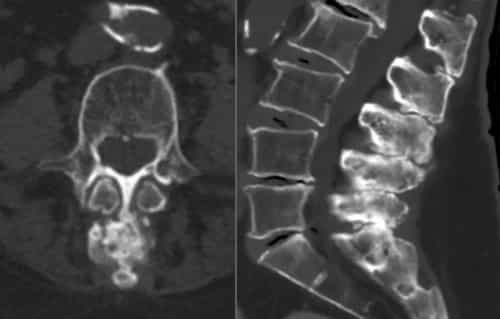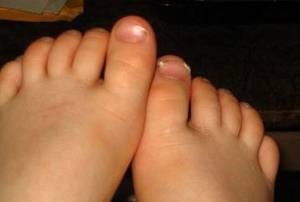Have you ever woken up with a tingling sensation in your hands or feet, as if they “fell asleep”? While occasional numbness is usually harmless, persistent or frequent episodes might signal an underlying medical condition. Numbness can range from mild discomfort to severe impairment, affecting your daily life, balance, and coordination.
Frequency of Causes of Numbness in Feet and Hands
| Cause | Frequency (%) |
|---|---|
| Diabetes (Neuropathy) | 40% |
| Pinched Nerve | 25% |
| Multiple Sclerosis | 15% |
| Poor Circulation | 10% |
| Other Causes | 10% |
This chart illustrates the most common causes of numbness in feet and hands. Diabetic neuropathy is the leading cause, followed by pinched nerves and neurological conditions like multiple sclerosis.
Common Causes of Numbness in Feet and Hands
There are several reasons why you might experience numbness in your extremities. Let’s break them down:
1. Peripheral Neuropathy
Peripheral neuropathy occurs when the peripheral nerves are damaged, often due to:
- Diabetes (diabetic neuropathy): A 55-year-old woman from Texas experienced persistent numbness in her feet, later diagnosed as diabetic neuropathy. Proper glucose management significantly improved her symptoms.
- Vitamin B12 deficiency: A 40-year-old vegan man developed tingling in his hands due to prolonged vitamin B12 deficiency, which resolved after supplementation. Deficiencies in folate and vitamin B6 can also contribute to nerve damage.
- Autoimmune diseases (e.g., lupus, rheumatoid arthritis): Many autoimmune disorders attack nerves, leading to chronic numbness and pain. For example, a 38-year-old patient with lupus suffered from intermittent numbness in her extremities due to inflammation affecting nerve function.
- Chronic alcoholism: A 50-year-old male with a history of alcohol abuse developed severe nerve damage, resulting in permanent numbness in his lower extremities. Alcoholic neuropathy often worsens over time without lifestyle changes.
- Certain medications (chemotherapy drugs, for example): Many cancer patients experience neuropathy as a side effect of chemotherapy. Some anti-seizure medications and antibiotics can also contribute to nerve damage.
2. Poor Circulation
Insufficient blood flow can cause numbness and tingling. This can result from:
- Atherosclerosis (narrowing of blood vessels due to plaque buildup): A 60-year-old man from New York experienced leg numbness that was later linked to peripheral artery disease.
- Blood clots: A case of a 35-year-old woman who developed a sudden clot in her leg led to immediate hospitalization and successful clot removal. Clots can obstruct blood flow, leading to oxygen deprivation in the limbs.
- Raynaud’s disease (where cold or stress causes blood vessel spasms): A 25-year-old woman from Minnesota noticed her fingers turning white in the cold, later diagnosed as Raynaud’s phenomenon. Lifestyle adjustments and medication helped her manage flare-ups.
3. Nerve Compression or Damage
Compressed nerves can lead to numbness and weakness. Common culprits include:
- Carpal tunnel syndrome (compression of the median nerve in the wrist): A 45-year-old office worker suffered from wrist pain and numbness, later relieved by ergonomic adjustments and wrist splints.
- Herniated disc in the spine: A case of a 50-year-old athlete who developed sciatica due to a herniated lumbar disc, ultimately requiring physical therapy. Herniated discs can press on nerves, causing radiating numbness and pain.
- Sciatica (compression of the sciatic nerve): A 60-year-old man with chronic back pain found relief through targeted physiotherapy and lifestyle changes. Sciatica is often accompanied by weakness in the affected leg.
- Tarsal tunnel syndrome (similar to carpal tunnel but in the foot): A 30-year-old runner developed persistent foot numbness, which improved with orthotic support. Tarsal tunnel syndrome can limit mobility if untreated.
4. Neurological Disorders
Certain conditions affecting the nervous system can also lead to numbness:
- Multiple sclerosis (MS): A 35-year-old woman noticed episodic numbness and vision disturbances, later diagnosed as MS. MS symptoms often fluctuate, making early diagnosis crucial.
- Stroke or transient ischemic attack (mini-stroke): A 65-year-old man experienced sudden numbness on one side, leading to a quick diagnosis and stroke prevention therapy.
- Fibromyalgia: A 45-year-old woman struggled with widespread pain and numbness, managed through medication and lifestyle adjustments. Fibromyalgia patients often experience chronic fatigue alongside neuropathic symptoms.
5. Medication Side Effects
Some drugs used to treat infections, seizures, or high blood pressure can cause neuropathy as a side effect. Patients on long-term medication should monitor for gradual numbness or tingling and consult their doctors.
Symptoms Associated with Numbness
Numbness rarely comes alone. Look out for accompanying symptoms like:
- Tingling or “pins and needles”: This sensation can feel like a mild vibration under the skin or an electric current running through your extremities. It is most commonly noticed after sitting in an awkward position for too long, but persistent tingling may indicate nerve damage.
- Weakness in the hands or feet: You might struggle with gripping objects, tying shoelaces, or even standing for prolonged periods without feeling unstable. If your grip suddenly weakens or you experience frequent muscle fatigue, this could be a sign of nerve or muscle dysfunction.
- Burning or sharp pain: Some people describe this as walking on hot coals or feeling like needles are pricking their skin. This symptom is often associated with neuropathy and can become severe enough to disrupt daily activities.
- Sensitivity to touch or temperature changes: You may find that even a light touch, such as bedsheets brushing against your skin, causes discomfort. Alternatively, your hands and feet might feel colder or hotter than usual without any external temperature change.
- Loss of coordination: If you find yourself stumbling more often or feeling unsteady on your feet, it could be due to compromised nerve function. Many individuals describe it as if their legs “aren’t listening” to their brain’s commands.
- Muscle cramps or twitching: Involuntary muscle movements can range from mild twitching to severe cramps that wake you up at night. This can be particularly common in conditions like restless leg syndrome or electrolyte imbalances.
If numbness is sudden, severe, or accompanied by dizziness, slurred speech, or confusion, seek emergency medical attention—it could be a stroke.
Severity of Consequences of Untreated Numbness in Feet and Hands
| Consequence | Severity (%) |
|---|---|
| Permanent Nerve Damage | 50% |
| Chronic Pain | 30% |
| Loss of Mobility | 15% |
| Increased Risk of Infection | 5% |
This chart illustrates the severity of consequences if numbness in feet and hands is left untreated. Permanent nerve damage and chronic pain are among the most significant risks.
How Is Numbness Diagnosed?
Your doctor will likely perform:
- A physical exam to assess reflexes, strength, and sensation. This typically costs between $50 and $200, depending on the clinic and location.
- Blood tests to check for vitamin deficiencies, diabetes, or thyroid problems. The cost can range from $100 to $1,500, depending on the specific tests required.
- Nerve conduction studies (NCS) to evaluate nerve function. These tests generally cost between $150 and $1,000, depending on the complexity and facility.
- MRI or CT scans to look for spinal cord issues or brain abnormalities. MRI scans range from $400 to $3,500, while CT scans cost between $300 and $3,000.
- Electromyography (EMG) to assess muscle and nerve activity. The price for this test varies between $200 and $1,500, depending on the location and provider.
Treatment Options for Numbness
The right treatment depends on the cause. Here are some approaches:
1. Lifestyle Changes
- Maintain a healthy diet rich in vitamins B12, B6, and folate
- Exercise regularly to promote circulation and nerve health
- Avoid prolonged sitting or standing in one position
- Manage underlying conditions like diabetes or high blood pressure
- Stop alcohol consumption and quit smoking to improve circulation
2. Medications
- Pain relievers (NSAIDs, gabapentin, or pregabalin for nerve pain)
- Blood thinners if the cause is circulation-related
- Vitamin supplements if deficiencies are present
- Anti-inflammatory drugs to reduce nerve swelling
3. Physical Therapy
- Stretching and strengthening exercises can relieve nerve compression
- Ergonomic adjustments for workstations to reduce pressure on nerves
- Massage therapy may help with chronic cases
4. Medical Procedures
- Surgery for severe cases (e.g., carpal tunnel release, spinal decompression)
- Nerve blocks or corticosteroid injections for inflammation-related numbness
- Transcutaneous electrical nerve stimulation (TENS) for nerve pain management
Effectiveness of Modern Treatment Methods
The chart presents the effectiveness of various modern treatment methods, with surgical intervention and physical therapy showing the highest success rates.
When Should You See a Doctor?
Consult a healthcare professional if you experience:
- Numbness lasting more than a few hours
- Weakness or muscle atrophy
- Difficulty walking or holding objects
- Symptoms worsening over time
- A history of conditions that may cause neuropathy
Editorial Advice
Numbness in feet and hands isn’t just an annoying sensation—it could be your body’s way of signaling something more serious. If it’s a one-time thing, no worries! But if it keeps coming back, don’t ignore it. Checking in with your doctor might save you from bigger issues down the road.









